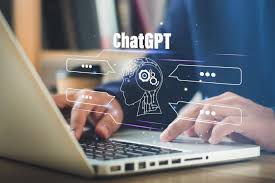A comparative analysis of ChatGPT feedback impact on EFL writing: Home institution students vs. exchange students
Main Article Content
Abstract
This study examines the effectiveness of ChatGPT’s feedback on students’ writing according to set criteria, including grammar, conciseness, use of reporting verbs and liking phrases, and inclusion of key information. Two groups of students served as a research sample, 15 home (Czech) students and nine exchange students studying at a Czech university. Therefore, the research further explores the similarities and differences of how home and exchange students used ChatGPT’s feedback to improve their writing skills. Through a mixed-methods approach, the research study explores both qualitative and quantitative aspects of students’ work with ChatGPT in classes in Professional English. The results point to the fact that many aspects of students’ writing improved after ChatGPT’s intervention. Home students improved mainly the conciseness of their writing, inclusion of key information, and the use of linking phrases, while exchange students improved their conciseness and the use of linking phrases and reporting verbs. Even though these results are similar, there is also a difference as exchange students were stronger in the use of grammar compared to the home students. These results not only indicate the need to incorporate AI-driven tools to improve students’ foreign language skills, but they also highlight what aspects of language should be trained more in future lessons
Downloads
Article Details
Issue
Section

This work is licensed under a Creative Commons Attribution-NonCommercial-NoDerivatives 4.0 International License.
References
Athanassopoulos, S. et al. (2023). The use of ChatGPT as a learning tool to improve foreign language writing in a multilingual and multicultural classroom. Advances in Mobile Learning Educational Research, 3(2). https://doi.org/10.25082/AMLER.2023.02.009
Barrot, J. S. (2023). Using ChatGPT for second language writing: Pitfalls and potentials. Assessing Writing, 57. https://doi.org/10.1016/j.asw.2023.100745
Coccia, M., & Benati, I. (2018). Comparative Studies. In: Farazmand, A. (eds) Global Encyclopedia of Public Administration, Public Policy, and Governance. Springer, Cham. https://doi.org/10.1007/978-3-319-31816-5_1197-1
Farahian, M. (2024). Is ChatGPT a cure all? Demystifying the impact of using ChatGPT on EFL learners’ writing skill. Applied Linguistics Inquiry, 2(1), 89-103.
Hayes, J. (2024, April 23). The Rising Dark Side Of Business Travel CEOs Need To Pay Attention. Forbes. https://www.forbes.com/sites/julianhayesii/2024/04/23/frequent-flyer-rethinking-companies-business-travel-approach/
Karataş, F., Abedi, F.Y., Ozek Gunyel, F. et al. (2024). Incorporating AI in foreign language education: An investigation into ChatGPT’s effect on foreign language learners. Educ Inf Technol, 29, 19343–19366. https://doi.org/10.1007/s10639-024-12574-6
Kurt, G., & Kurt, Y. (2024). Enhancing L2 writing skills: ChatGPT as an automated feedback tool. Journal of Information Technology Education: Research, 23, 24.
Javaid, M. et al. (2023). Unlocking the opportunities through ChatGPT Tool towards ameliorating the education system. BenchCouncil Transations on Benchmarks, Standards and Evaluation, 3(2). https://doi.org/10.1016/j.tbench.2023.100115
Mahapatra, S. (2024). Impact of ChatGPT on ESL students’ academic writing skills: a mixed methods intervention study. Smart Learning Environments, 11(9). https://doi.org/10.1186/s40561-024-00295-9
Masoudi, H. A. (2024). Writing Proficiency among Non-native English Speakers. International Journal of Educational Sciences and Arts (IJESA), 3(4). https://doi.org/10.59992/IJESA.2024.v3n4p2
Mondal, H., & Mondal, S. (2023). ChatGPT in academic writing: Maximizing its benefits and minimizing the risks. Indian Journal of Ophthalmology, 71(12), 3600–3606. https://doi.org/10.4103/IJO.IJO_718_23
Özçelik, N. P. & Ekşi, G. Y. (2024). ChatGPT as a learning assistant – a case study. Smart Learning Environments, 11(10). https://doi.org/10.1186/s40561-024-00296-8
Polakova, P. & Ivenz, P. (2024). The impact of ChatGPT feedback on the development of EFL students’ writing skills., Cogent Education, 11(1). https://doi.org/10.1080/2331186X.2024.2410101
Ravšelj, D., Keržič, D., Tomaževič, N., Umek, L., Brezovar, N., A Iahad, N., Abdulla, A. A., Akopyan, A., Aldana Segura, M. W., AlHumaid, J., Allam, M. F., Alló, M., Andoh, R. P. K., Andronic, O., Arthur, Y. D., Aydın, F., Badran, A., Balbontín-Alvarado, R., Ben Saad, H., Bencsik, A., … Aristovnik, A. (2025). Higher education students' perceptions of ChatGPT: A global study of early reactions. PloS one, 20(2), e0315011. https://doi.org/10.1371/journal.pone.0315011
Seelro, S. & Khan, M. A. (2024). Exploring the Benefits and Challenges of ChatGPT in Enhancing ESL Learners Writing Skills. Academy of Education and Social Sciences Review, 4(4). https://doi.org/10.48112/aessr.v4i4.885
Shoul, T. (2024). Role of activity-based learning and ChatGPT on students’ performance in education. Computers and Education: Artificial Intelligence, 6. https://doi.org/10.1016/j.caeai.2024.100219
Song, C., & Song, Y. (2023). Enhancing academic writing skills and motivation: assessing the efficacy of ChatGPT in AI-assisted language learning for EFL students. Frontiers in psychology, 14, 1260843. https://doi.org/10.3389/fpsyg.2023.1260843
Tlili, A. et al. (2023). What if the devil is my guardian angel: ChatGPT as a case study of using chatbots in education. Smart Learning Environments, 10(15). https://doi.org/10.1186/s40561-023-00237-x
Trang, N. T. Q. & Thu, P. T. (2024). Cultural influences on students’ information technology skills development. International Journal of Multidisciplinary Research and Analysis, 7, 2014-2019. https://doi.org/10.47191/ijmra/v7-i05-26
Zhang, Y. (2024). Incorporating ChatGPT as an automated written corrective feedback tool into L2 writing class1. Journal of Language Teaching, 4(4), 22-34. https://doi.org/10.54475/jlt.2024.024

